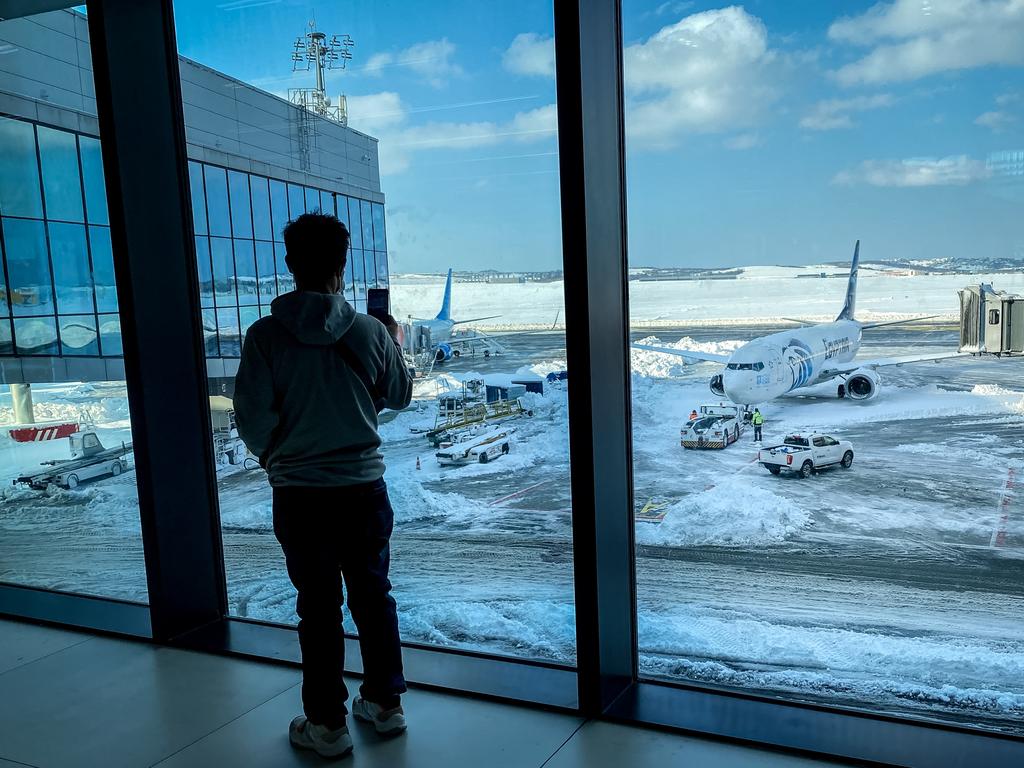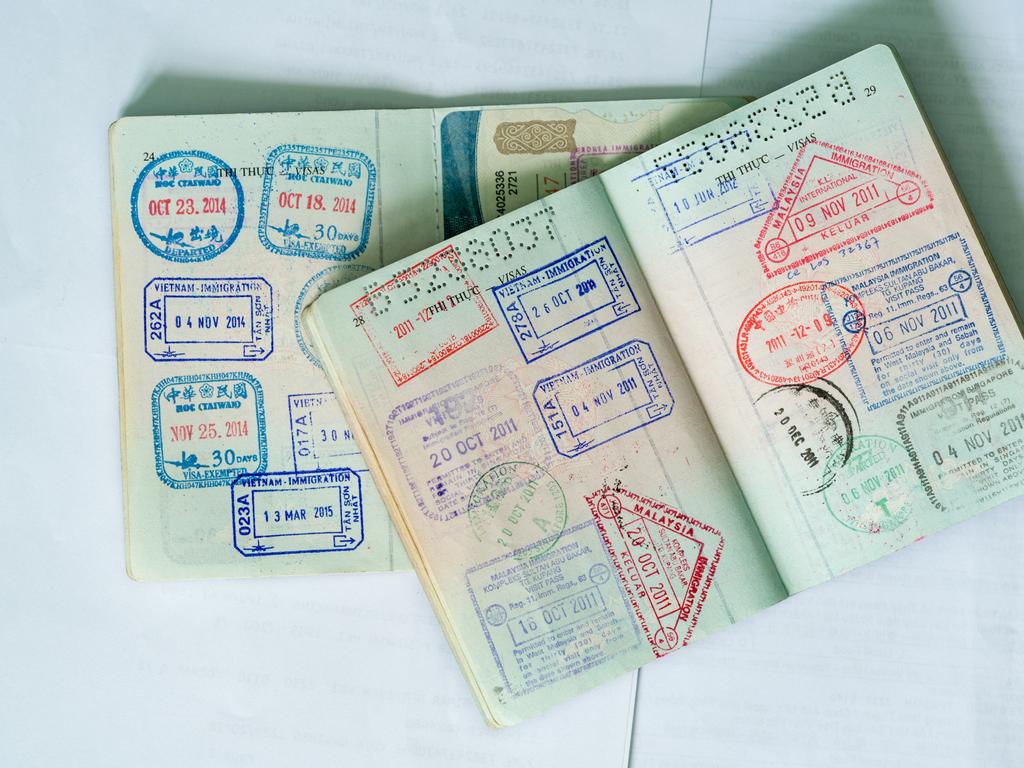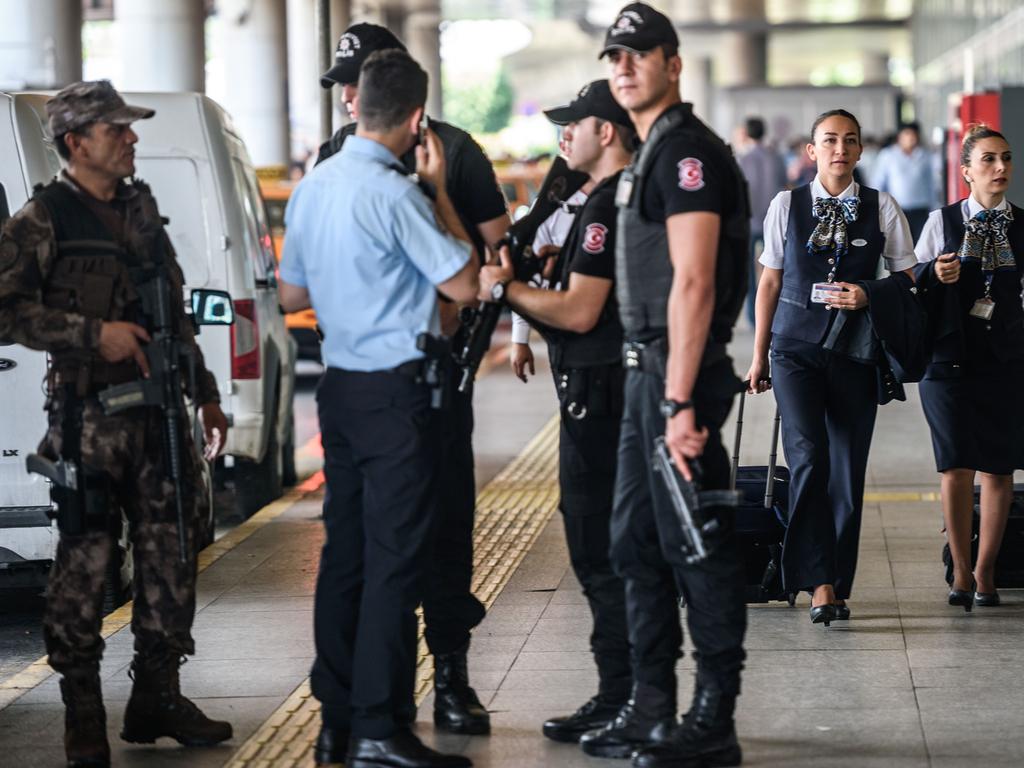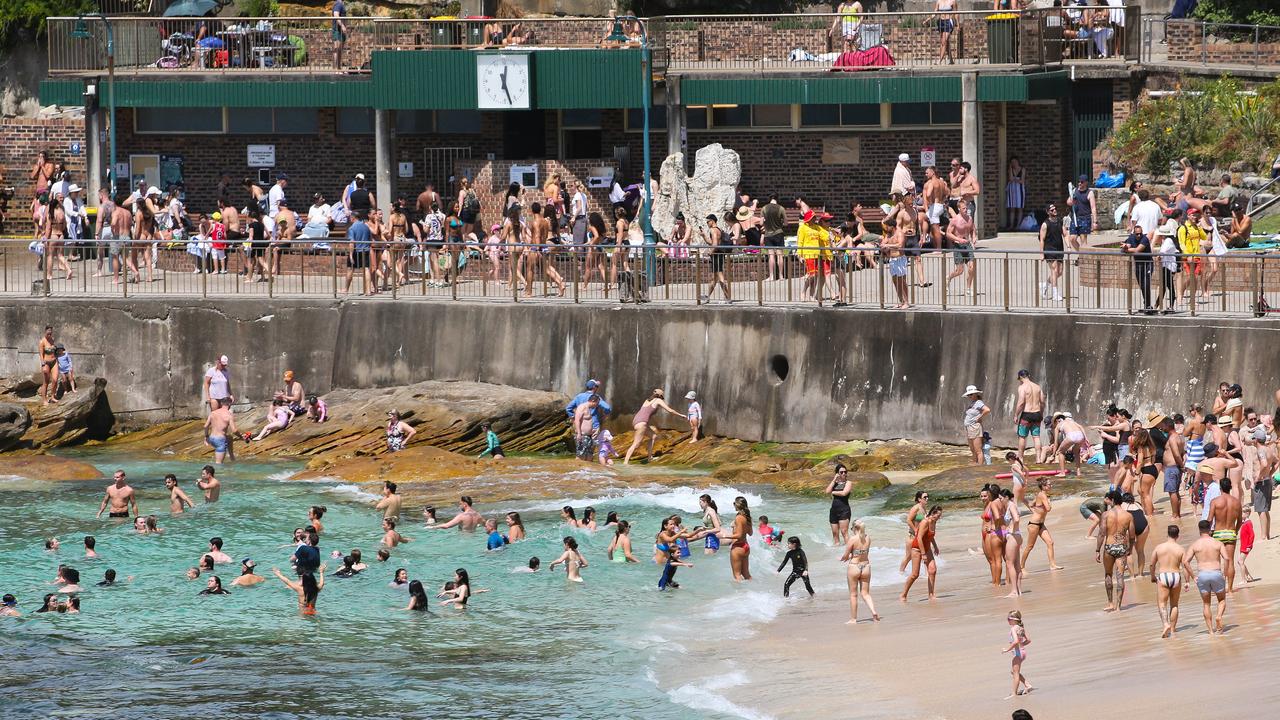How fake passports are allowing Islamic State members to travel in Europe, US
It’s supposed to stop terrorists and criminals from entering peaceful countries but for as little as a few thousand dollars, they can gain access with a perfect, fake passport.
They’re supposed to be the final frontier stopping criminals and terrorists gain access to peaceful countries, but for a few thousand dollars, those exact people are gaining access to perfectly fake documents that will let them travel wherever they like.
The fake passport industry is booming, with online networks and extremists perfecting the documents and also selling official visas and all the necessary travel stamps required.
A recent investigation by The Guardian found people with links to the terrorist group Islamic State were being given the opportunity to escape Syria and travel on to the US, Canada, the UK and anywhere in the European Union.
In at least two cases, fake Russian passports were used to fly from Istanbul to Mexico before they crossed the border into the US.

The publication uncovered one particular network on the dark web, run by an Uzbek extremist living in Turkey, whose business is thriving so well he has updated his Telegram name to “Istanbul Global Consulting”.
The extremist has become a popular seller on the dark web, offering high-quality passports for up to $US15,000 ($A21,227).
For those with less money, sellers also offer passports to Russia, Kyrgyzstan and Kazakhstan for as little as $US5000 ($A7025).
Adding on a Schengen visa, which gives the person unrestricted access to most European countries, costs an extra $US1000 ($A1414).
EU passports typically cost around $US8000 ($A11,315) but give the person unrestricted access to Europe, with no visa required.
Banned westerners or Arabs, who speak French and can pass for European, typically buy this option.
The scheme behind the fake passports usually involves EU citizens landing in Turkey on their own passport before selling it to the Uzbek for around $A4000.
The passport photo is then changed to the client and the original owner claims they’ve lost the passport and applies for a new one in Istanbul.

At least 10 people have managed to use the fake passports to illegally leave Syria and cross into Turkey, before flying to various countries around the world from Istanbul Airport.
In a chat with The Guardian, the Uzbek admitted he was not interested in a client’s history or potential terrorism links.
“I do not ask about which group someone is with. I am willing to work with anyone,” he said in the chat.
“It is not my job to see who is bad and who is not. The security services should deal with it.”
Western nations have been on high alert after Islamic State launched an attack on a prison earlier this month to free its fighters in Syria.
IS fighters on January 20 launched their biggest assault since the loss of their “caliphate” nearly three years ago, attacking the Ghwayran prison in the Kurdish-controlled northeast Syrian city of Hasakeh to free fellow jihadists, sparking battles that left over 370 dead.
More than 50 nationalities are represented in Kurdish-run prisons holding more than 12,000 IS suspects.
The Kurdish administration’s foreign policy chief Abdulkarim Omar described the IS threat as “like a fireball, it gets more dangerous and complicated with time”.
The self-declared IS caliphate, established in 2014, once straddled large parts of Iraq and Syria, a country wracked by civil war since 2011.
After five years of military operations conducted by local and international forces, IS’ last collective was eventually flushed out on the banks of the Euphrates in eastern Syria in March 2019.

In 2015, it was revealed Islamic State had managed to capture blank passport books and printers to make Syrian and Iraqi passports.
Since then, Europe invested heavily in technology and training to try and detect fake passports but just as Europe pivoted, so too did the criminal networks.
In the chat with The Guardian, the Uzbek sent videos of his products, proving his fake passports pass all the security measures including a Russian passport that contained the required UV-sensitive stamps that officials look for.
The videos included French, Belgian, Bulgarian and Russian passports with authentic security watermarks and holograms.
The Uzbek also recently expanded his business to Afghans after the Taliban seized control of the country last year and security heightened.
More Coverage
And for people wanting to drop off the grid completely, the Uzbek can even fake your death.
For $US500 ($A707), he can create a passable Turkish death certificate that is then sent to the person’s home country consulate.
“Unless you are Abu Bakr Baghdadi (the IS leader who died after detonating a suicide vest in 2019), no one would go to the morgue to check if you really died. They would just accept that document and enter it into the system,” he said.




